The Theodore Roosevelt Institute (TRI) at Long Island University held a special centenary conference to celebrate the legacy of America’s 26th president. National experts on Roosevelt shared scholarly insight on his charismatic personality, forward-thinking policy and enduring influence. Guest speakers included: Karl Rove, Colombian Ambassador Francisco Santos, Historian Jorge Orlando Melo, Michelle Krowl, Susan Sarna, Todd Brewster, Geoffrey Cowan and Dr. Michael Cullinane. The three-day event also featured a film festival, breakout sessions and presentation of the Roosevelt Medal to New York Governor Andrew Cuomo.
LIU Professor Anait S. Levenson Helps Host International Conference on Medicinal Plants in India
![IMG-20190219-WA0105[1]](https://headlines.liu.edu/wp-content/uploads/2019/06/IMG-20190219-WA01051.jpg)
Unlocking the healing power of plants to combat human diseases is a personal mission for Dr. Anait (“Ana”) Levenson, M.D., Ph.D., who has devoted years of research to this vital area.
At LIU Pharmacy since 2016, Dr. Levenson has been studying how bioactive compounds found in grapes and blueberries could lead to the cure of prostate and breast cancer. As a professor at the proposed new College of Veterinary Medicine at LIU Post, pending its accreditation, she’ll continue her work in this growing field.
Her intense interest in this subject recently drew her along with hundreds of the world’s other top researchers to convene in northern India at the foothills of the Himalayas for the second International Conference by the American Council for Medicinally Active Plants (ACMAP) together with the International Conference on Medicinal, Aromatic and Nutraceutical Plants from Mountainous Areas. The conference, held in February, was jointly arranged by the ACMAP, USA, and the Graphic Era (Deemed to be University), Dehradun, Uttarakhand, India.
“We are just beginning to understand the potential these plants could have for our health,” Levenson said.
Representing LIU, she chaired the “Human Health and Plants” session and was a keynote speaker as well as one of the organizers. A former vice president of ACMAP, Levenson continues to be an active member of its Board of Directors. Three years ago, ACMAP organized the first international conference in Lima, Peru.
“Both Peru and India are places where people have been using plants for medicinal purposes for thousands of years,” Levenson said. “These countries have those traditions but they lack the technology to work with them. Whereas we Americans have the technology and the researchers, but we lack that tradition.”
Her keynote lecture was titled “Chemopreventive and Therapeutic Effects of Stilbenes in Prostate Cancer.”
“Stilbenes are naturally occurring polyphenols (compounds) found in food and plants,” she explained. “Resveratrol found in grapes and red wine is the most widely studied stilbene compound with diverse pharmacological properties including anticarcinogenic effects. Another natural stilbene found mostly in blueberries is resveratrol’s cousin, pterostilbene, which also possesses anti-inflammatory, antioxidative and anticancer properties that can be used for chemoprevention and/or therapy in cancer. Pterostilbene exhibits more potent biological effects than resveratrol due to subtle differences in its molecular structure.”
Interestingly, she pointed out that India has a very low rate of prostate cancer, which she believes could be due to the preponderance of curcumin from turmeric in their diet. “A lot of studies do show that curcumin has anticancer, anti-inflammatory and antioxidant properties,” she said.
Although cancer is Levenson’s specialty, she wanted to emphasize that the scientific gathering was not a “cancer conference. It was about bioactive molecules from food and plants that can be used in treating different diseases.”
One of the most interesting connections Levenson said she made at the conference was meeting Professor Oliver Kayser, who is doing cannabis research at TU Dortmund University in Germany. He is also an Editor-in-Chief of Planta Medica, an international journal of natural products and medicinal plant research.
“He’s not a cancer cell and molecular biologist like me. He’s a medicinal chemist,” Levenson said, adding that she believes that multidisciplinary collaborations that bring a unique set of skills and a combined expertise in different areas of science are the key for new discoveries and successful research projects. Cannabinoids (CBD and THC) could be made into “more potent anticancer agents. This is what I want to study.”
Adding to the urgency of the conference was the prospect that climate change could wipe out many plants used in traditional medicine before scientists have the chance to examine their molecular structure in depth.
“We can’t allow these plants to die out,” she said, adding that one of the themes of the conference was a Himalaya farmers’ forum. “We have to study them more because they can offer us new compounds that we could use to cure diseases like diabetes and cancer. We don’t want to be too late!”
By all accounts, the conference was an overwhelming success. Levenson especially enjoyed meeting the Indian university students. “The students were very inspired and very enthusiastic,” she exclaimed. “We felt like celebrities!”
Now in the planning stages, the next ACMAP conference may take place thousands of miles away—in New Jersey. “We can’t go international all the time,” Levenson lamented. “It’s very, very hard to put together.”
But she has no doubt that the promise these plants hold makes it all worth it in the end.
LIU Student Newspaper ‘The Pioneer’ Wins Top Honors at Press Club of Long Island’s Awards Dinner
![IMG_2354[19]](https://headlines.liu.edu/wp-content/uploads/2019/06/IMG_235419.jpg)
The Pioneer, the student newspaper of the LIU Post campus, won first place in the hotly contested College Newspaper category in the Press Club of Long Island’s annual Media Awards competition, which took place on June 6 before a crowd of almost 240 people gathered at the Watermill Caterers in Smithtown.
The award for Best College Newspaper was presented to co-editors-in-chief Jada Butler and Ashley Bowden and to The Pioneer’s staff.
Professor Carolyn Schurr Levin, The Pioneer’s faculty advisor, called the University’s achievement “incredible news.”
“This category has, for a long time, been dominated by Stony Brook, Hofstra and Adelphi,” she explained. “We knew what we had to do to win an award in this category. We improved our website, our social media and our copyediting, and we varied the content in the paper, among other things. We finally won third place in this category in 2016. We won second place in this category in 2018. This year is, to the best of my knowledge, the first time that the Pioneer has ever won first place for Best College Newspaper.”
“It’s really great that the high standards and the professionalism that we built into The Pioneer has been recognized and we’ve gotten this award for best college newspaper,” exclaimed Ashley Bowden, who is doing an internship this summer at a real estate publication in her hometown of Chicago. “It’s a real honor. I’m really proud of it.”
“I’m grateful to PCLI for acknowledging the hard work we’ve put into our newspaper,” said Jada Butler, who is doing an internship at Vice Media in Brooklyn this summer. “I’m also beyond proud of our staff for persevering through the many challenges we faced this year with reporting the harder news on campus. In the end, it was incredibly rewarding to see the real impact, action and dialogue that was created because of it.”
Jada Butler and Josh Tolentino, assistant features editor, also won first place in Narrative-Sports Reporting for “Game Changer: Athletics Becomes ‘OneLIU,’” which talked about the merger of the University’s sports departments to compete in Division 1 of the NCAA.
He just graduated in May.
Karis Fuller won second place in Narrative-Sports Reporting category for her story, “Post and Adidas: Match Made in Heaven,” which recounted how the company is sponsoring the athletes’ uniforms and other sports equipment. Fuller, who also just graduated in May, was on the swim team. She is from England.
As Professor Schurr Levin said, “It was a very good night for The Pioneer.”
LIU Professor Daniel Hanley’s Insightful Research Reveals How Nesting Birds Behave
An international team of researchers led by LIU Post Biology Professor Dr. Daniel Hanley has used a new experimental approach to study how birds evaluate whether an egg in their nest belongs to them or whether it was left by a freeloader—apparently an all too common practice in the bird world. His groundbreaking work has been drawing increasing attention in scientific circles.
Birds’ eggs can range in color from blue-green to brown, and can often be speckled. Traditional theory assumes that if the impostor’s egg appears quite similar to their own eggs, then the bird will likely accept it, but if it differs dramatically, then the bird will reject it.
A recent study led by Dr. Hanley, which was published in the prestigious peer-reviewed Proceedings of the Royal Society B, under the auspices of the world’s oldest independent scientific academy, discovered that host birds in Europe and North America actually respond to some colors more strongly than to others. It seems that hosts—what the foster parents are called—really “dislike” brown eggs and remove them at a much higher rate than blue-green eggs, despite how different they appear from their own eggs.
“They’re basically kicking out all eggs that are brown and accepting all eggs that are blue, which completely changes how we understand the theory,” explained Dr. Hanley.
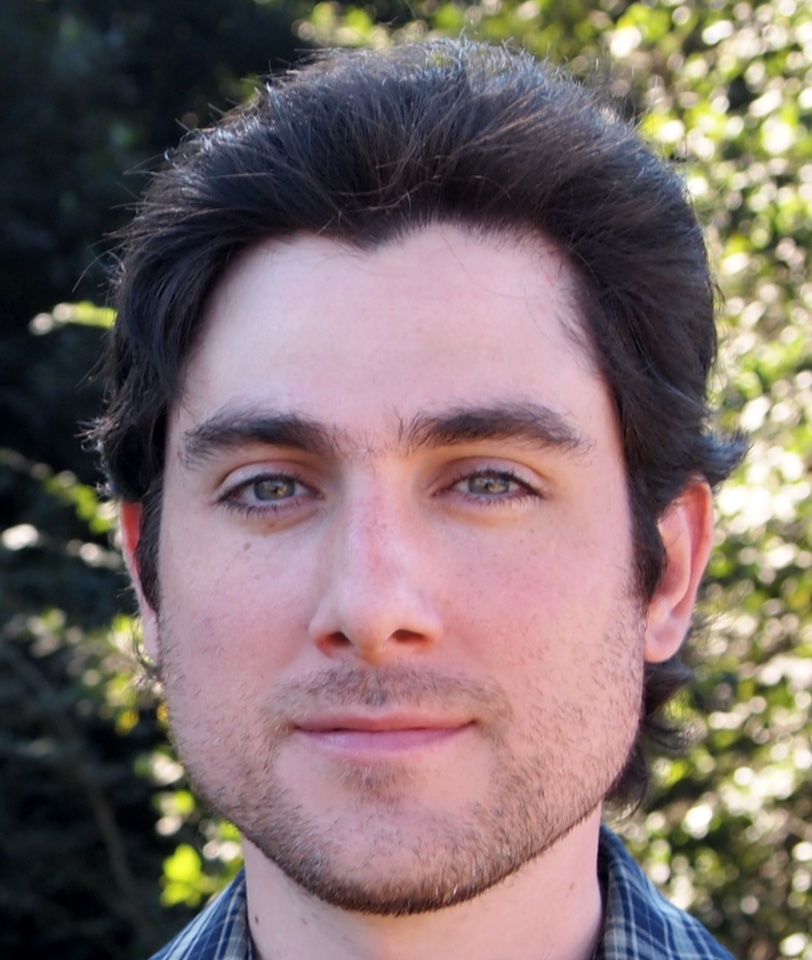
In another new paper by Dr. Hanley and his colleagues, Hanley’s team discovered that these same behaviors are also exhibited by an unrelated bird host that lives in South America. These findings illustrate that humans have a lot to learn about how wild birds use color information in their decision making.
In their recent paper published in The American Naturalist, Dr. Hanley and his colleagues, Dr. Mark Hauber (University of Illinois Urbana-Champaign), Tomáš Grim and Karel Gern, studied how the common blackbird responds to an unprecedented range of colors. Since birds can see far more colors than humans can perceive, Dr. Hanley and co-author Karel Gern made a bird-specific color wheel to make paints for coloring artificial eggs. They manipulated the three main components of color: hue, saturation (i.e., intensity) and brightness. Dr. Hanley found that birds responded strongly to a greater scope of colors than had been previously tested. The researchers also found that the components of color interacted in the birds’ perceptual space. For example, birds may respond to some hues only when they are intensely colored.
Armed with this new information, Dr. Hanley and his colleagues will probe the subtle differences in color perception among birds around the world. The nearly 10,000 species of birds have a wide range of evolutionary histories and ecologies, which have led to unique perspectives that this research group plans to explore. In this way, birds may finally show the authors their true colors.
LIU Post Graduate Maria Salazar Is Named Grand Marshal of Port Washington Memorial Day Parade

Maria L. Salazar (Post ’19, B.A. in Art Therapy), a U.S. Marine Corp veteran, has been picked by Port Washington’s VFW Post to be the Grand Marshal in the 2019 Memorial Day Parade.
“We are all so proud of her. I can’t say enough good things about her,” said John Baptisto Fiore, commander of VFW Post 1819.
Salazar is currently the Junior Vice Commander for VFW Post 1819 in Port Washington, as well as the Madam Commandant for the Father Vincent Capodanno Marine Corps League Detachment in Manhasset.
“It’s a great honor for me to be nominated by my fellow veterans, especially because I’m young and I’m a female veteran,” said Salazar. “It makes it that much more special to me because I feel that they respect me and they accept me.”
Born in Peru in 1980, Salazar moved to the United States with her family in 1992 and settled in Bridgewater, N.J. After the terrorist attacks on 9/11, Salazar enlisted in the U.S. Marine Corps.
According to the VFW, she completed boot camp in Parris Island, S.C., the following August. She graduated from Marine Combat Training in Camp Geiger, N.C., and was given the Honor Grad award from Maintenance Management School at Camp Johnson, N.C., where she earned the meritorious rank of Lance Corporal Veteran. In November 2002, Salazar reported to her first unit, 6th Motor Transport Battalion, H&S Co., in Redbank, N.J. Her military occupation was logistics specialist.
In January 2003, Salazar’s unit was deployed in support of Operation Iraqi Freedom. An eight-month deployment, she turned 23 years old while being deployed. In 2011, having served nine years, Salazar was honorably discharged with the rank of Sergeant, E-5.
Upon entering the civilian sector, Salazar became a fitness and dance instructor, based mostly in central New Jersey. In 2012, Salazar moved to Maspeth, Queens, with her spouse Nathan Jefferson and daughter Alyssa. The following year, the family welcomed the arrival of twins, Izabella and Nathanyel. In 2015, Salazar and her family made Port Washington their home.
In 2016 Salazar enrolled at LIU Post, where she pursued a bachelor’s degree in art therapy with a focus in ceramics and art history. She graduated on May 10, 2019, with honors and also was inducted into SALUTE, a Veterans National Honor Society for outstanding academic achievement.
“The reason why I decided to go back for art therapy was because one of my corporals committed suicide,” she explained. “We had no idea that he was feeling that way. So, that pushed me to go back. I totally believe in the motto of the Marine Corps, which is Semper Fidelis. I want to continue to serve my veteran community.”
Salazar plans to pursue her master’s in art therapy and counseling from LIU Post in the fall. Her goal is to provide much needed support to the veteran population battling mental health wounds.
Salazar was awarded the National Defense Service Medal, the Iraq Campaign Medal, Armed Forces Reserve Medal, Sea Service Deployment Medal, and The Marine Corps Overseas Service Medal, as well as a Presidential Unit Citation. Besides being active in her local VFW Post, Salazar volunteers with many community veteran organizations such as Team RWB, Marine Corps League, Veteran Artists Program, and the Women Veterans Art Project.
The Port Washington Memorial Day parade starts at 10 a.m. on May 27 at the Paul D. Schreiber Senior High School on Campus Drive and heads down Main Street to the Town Dock.
Welcome to the Shark Tank: Long Island University Chooses the Shark as New Mascot
Long Island University students and alumni made history Wednesday by choosing the Shark as the mascot of its expanded NCAA Division I program, which will unite the Brooklyn and Post campuses. The movie Jaws made us fear the shark, and television shows like Shark Tank, Shark Week, and Sharknado are staples of popular culture. Long Island University is the first NCAA Division I program on the East Coast to make the Shark its mascot.
LIU teams will compete as the Sharks beginning this September. The Shark is an animal which embodies strength, resolve, and brilliance, all qualities that embrace the spirit of LIU and the individuals who comprise our extraordinary University.
The Shark was selected as the favorite mascot from among three finalists by a vote of LIU students and alumni. Voting was held from April 23, 2019 through May 14, 2019, with the Shark beating its competitors, the Eagle and the Falcon.
“Long Island University students and alumni took the opportunity to set a distinct path by choosing the fearsome Shark as our mascot,” Long Island University Director of Athletics Debbie DeJong said, “As we elevate LIU’s campuses into a single, stronger, Division I program, we will join together proudly as Sharks.”
LIU’s united NCAA Division I program builds on a foundation of excellence and tradition. In LIU’s history, its teams (LIU Brooklyn Blackbirds and LIU Post Pioneers) have combined for 23 national championships, 215 conference titles, and 362 All-Americans. The colors of the new LIU Sharks will be blue and gold— chosen to honor and unite the traditions of the University.
The announcement drew early interest from local New York news media. Both Newsday and the New York Post reported the news.
What the new mascot will look like remains to be seen, but plans are underway to reveal the Shark soon when the waters clear.
Shark Facts:
- Defender of the Island
- Feared animal of the sea
- Celebrated predator
- Relentless, powerful and intelligent
- Sharks have lived in the oceans for more than 400 million years—200 million years before the dinosaur set foot on land
- Sharks can weigh up to 50,000 lbs.
- More than 400 species of sharks: it’s very diverse
- Detect prey 3,000 feet away
- Powerful jaws can generate up to 40,000 pounds of pressure per square inch
- The bite force of a great white shark is 4,000 PSI—four times stronger than a tiger’s bite
For questions contact:
Casey Schermick, Director of Athletic Media Relations
Email: Casey.Schermick@liu.edu
Phone: 516-532-0852
More Than 2,300 Students Receive Their Degrees at LIU Brooklyn’s Commencement
Dr. Spiridon (Spiro) Spireas, Ph.D., Chairman of the Board and Chief Executive Officer of SigmaPharm Laboratories, and Dr. Naif Al-Mutawa, Ph.D., an award-winning serial entrepreneur, clinical psychologist and clinical hypnotherapist, each received honorary degrees at LIU Brooklyn’s commencement ceremony this year, which took place on May 14, 2019 at the Barclays Center in Brooklyn.
On an unseasonably chilly morning in mid-May, the exuberant participants were grateful the graduation ceremony took place indoors at the sports facility up the street from the LIU Brooklyn campus. A total of 1005 undergraduates received their Baccalaureates; 947 students received their Master’s Degrees; 73 received their Dual Baccalaureate/Master’s Degrees; and 249 students received their Doctorates. Thirty-one students earned their Advance Certificates. The ceremony was the joint commencement of LIU Pharmacy (Arnold & Marie Schwartz College of Pharmacy and Health Sciences), LIU Brooklyn, LIU Global, and LIU Hudson of Long Island University.
A tenured Professor of Pharmacy at LIU Pharmacy, Dr. Spiridon Spireas was the keynote speaker. He received an honorary Doctor of Science degree from LIU President Dr. Kimberly R. Cline. He is the inventor and author of more than 130 international and domestic patents and patent-publications, and 200 scientific papers, books and other publication in the fields of industrial pharmacy, pharmaceutical technology, pharmacokinetics and analytical chemistry. He is also the inventor of several newly developed proprietary drug delivery systems used by the Pennsylvania-based company.
Founder of The Soor Center for Professional Therapy and Assessment in Kuwait, Dr. Naif Al-Mutawa, who also spoke, received an honorary Doctor of Humane Letters degree. A licensed psychologist in New York State, Dubai, Qatar and Kuwait, he is a member of the American Psychological Association and the American Association of Sexuality Educators, Counselors and Therapists. He has a Ph.D. in Clinical Psychology from LIU, where he also earned a Master’s Degree in Clinical Psychology. Dr. Al-Mutawa has done extensive clinical work with former prisoners of war in Kuwait as well as with the Survivors of Political Torture Unit at Bellevue Hospital in New York City. He is the author of a children’s book that won a UNESCO Prize for Literature in the Service of Tolerance, and the creator of THE 99, the first group of comic superheroes born of an Islamic archetype, which drew praise from Forbes magazine as well as President Barack Obama.
When the last degree was given two cannons on opposite sides of the gymnasium floor blasted clouds of confetti into the air as the newly minted graduates cheered with pent-up relief that they’d finally made the grade.
With $100 million in scholarships and financial aid awarded annually, LIU has 19 Schools and Colleges, 400 academic programs, a 12:1 student-to-faculty ratio, and 110 student-run clubs and organizations.
Payscale has ranked LIU Brooklyn as the “Best in the Nation for Health Professions” and one of the “Top 50 Colleges in the Northeast for Salary Potential.” Forbes ranked LIU in its Top Ten “Hot Colleges in the Making Under Innovative Management.”
Library of Congress Hosts LIU Alum Art Beltrone’s Vietnam War History Project
World War II was in the past and the Vietnam War lay in the future when Art Beltrone (Post ’63, B.A.) first came to the Brookville campus in 1959. In the years to come, this former Long Island public relations man and ex-Newsday reporter, now residing in Keswick, Virginia, would come to play a key part in preserving the memories of the brave men who fought in those two epic battles. His unique veterans’ projects have drawn nationwide coverage in the Washington Post, The New York Times, CBS and NPR, to name a few media outlets that reported on his ongoing efforts to keep their history alive.
On May 17, 2019, the Library of Congress plans to host a special presentation of “Marking Time: Voyage to Vietnam,” a traveling exhibit by Art and Lee Beltrone, the husband and wife co-founders of the Vietnam Graffiti Project, at its prestigious Packard Campus’s National Audio-Visual Conservation Center in Culpeper, Virginia. Currently the exhibit is on display at the Heinz History Center in Pittsburgh, Pennsylvania, through September before it moves to the National World War I Museum and Memorial in Kansas City, Missouri, where it will remain until next May.
Of course, Beltrone had many other things on his mind freshman year—in particular the lack of an FM radio station like the one he’d been actively involved with at Sewanhaka High School in Floral Park. He liked broadcasting so much that he’d gotten a summer job at NBC after he finished high school. But he soon realized that delivering mail wasn’t going to get him on the air. So, he decided to go to college instead and become an English teacher.
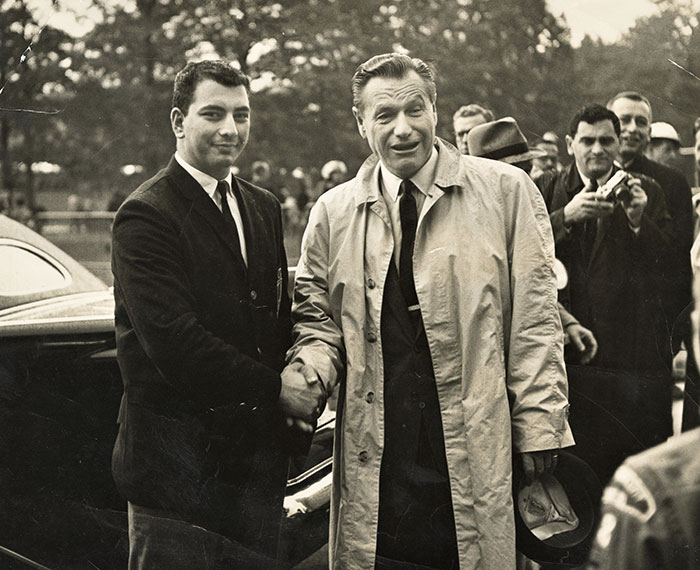
Hoping to get a radio station off the ground at Post, he met with Dean of Students Fred DeMarr, who was cool to the idea at first until Beltrone suggested that the station could get sponsors and that he’d look into his NBC contacts about obtaining unwanted radio equipment. And that’s what happened. Years later, Beltrone would be honored by other radio alumni with a plaque as the founder of WCWP.
“One of the things that I still remember—and I really appreciate so much—was the encouragement of the Post faculty,” Beltrone said. This experience propelled him over the years to keep striving to accomplish something new.
“That’s what I learned as a Post undergraduate,” Beltrone explained. “When you have an idea you feel is worth pursuing, jump in and do whatever it takes to make it happen.”
In senior year, Beltrone took two elective journalism courses while playing varsity baseball. After class one day, his teacher, Tony Insolia, an esteemed Newsday editor, asked him to wait around. As Beltrone recalled the conversation, Insolia said, “ ‘Look, you play baseball, right?’ I said yes. So he says, ‘Why don’t you come to Newsday and take a look at us. Come for an interview.’ And this is the important part: He said, ‘If you get a job with us, we would like you to play softball on our softball team.’ I was a ringer!”
So he got the entry-level job and was quickly promoted to full-time reporter. It’d helped his cause that while he was an undergrad at Post he’d continued to work summers and weekends during the school year at NBC as a copy clerk in their news department, often pulling all-night shifts. Beltrone had only been at the Long Island paper about five months when he received a letter from the government telling him to report for his Army physical.
“Oh, my gosh, I’d just gotten this great job and I’m being drafted!” Beltrone recalled thinking. He followed a colleague’s advice and joined the Marine Corps Reserves, which had a battalion headquartered in Garden City, so he could remain at Newsday and fulfill his military obligation. He was never called to active duty, which added to the responsibility he felt when he later took on the veterans’ projects.
TWO RED SPORTS CARS
One summer night in 1963 after putting the paper to bed, he decided on a whim to stop at a different Garden City restaurant from his usual routine on his way home to Elmont. He parked his red Triumph Spitfire right behind a red MG midget that he couldn’t help noticing, since both convertible sports cars had their tops down.
“Lo and behold, there’s Lee sitting at the bar with her date,” said Beltrone about his future wife, a music major whom he’d known in high school. “We renewed our acquaintance and somehow the conversation got around to what vehicles we’re driving.” It turned out that he’d parked right behind her car. They got married in 1965 and eventually had two children—a son Brent and a daughter Laurel—who later got drafted into helping Art and Lee document their Vietnam Graffiti project.
Beltrone credits his late parents, Arthur and Marie Beltrone, for encouraging his life-long interest in military history when he was young. They’d take him to big family dinners at his grandmother’s house in Bay Ridge, where a German officer’s sword and medal from the Second World War hung on the wall of the dining room. “It was so intriguing! I would position myself at the table so I could look at them,” said Beltrone, adding that one of his uncles, an Army medic, had brought them back as souvenirs.
Beltrone’s first venture beyond studying war history and collecting military artifacts started in the early 1990s when a friend sent him a journal that had belonged to a captured American airman held prisoner during WWII.
“Its pages were covered with carefully placed poetry and collections of information, as well as pencil drawings and vibrant watercolors,” Beltrone later wrote in what would become “A Wartime Log,” published by Howell Press of Charlottesville, Va., to commemorate the 50th anniversary of D-Day. He called it “a collective memoir of life behind barbed wire.”
Beltrone learned that the Y.M.C.A. had produced these logbooks for their distribution to American POWs under the Geneva Conventions’ rules of war so the U.S. Army Air Force pilots and crewmen locked up in the prison camps could use them as journals, knowing that whatever they wrote would have to pass muster with German censors. After several years of research and thousands of miles of travel, Art and Lee Beltrone found more than a dozen diaries that had survived the war as well as the prisoners’ release—many journals had been burned for warmth on the Americans’ long march to freedom. An accomplished photographer and editor, she photographed them to illustrate this poignant volume. As Beltrone put it: “They all share a number of common characteristics: the prisoner’s patriotism, his sense of humor, his creativity, and his will to survive.”
Beltrone also contributed to an exhibit at the Intrepid Sea Air Space Museum in Manhattan called “The Wartime Log,” which opened Sept. 16, 1995. Among the POW artifacts accompanying the show was a violin that a skilled prisoner had crafted out of bed slats and a table leg, with sheep gut used for the strings.
 A decade later Art and Lee collaborated on another vitally important book, “The Vietnam Graffiti Project: Messages From a Forgotten Troopship,” published in 2004 by Howell Press. How it came to be is a story for a movie. In fact, it was Beltrone’s friendship with his Virginia neighbor, Jack Fisk, a motion picture production designer as well as the husband of actress Sissy Spacek, that led the two men to go on a reconnaissance mission to an old troopship moth-balled in the James River and slated for the scrap heap. Fisk had been hired by Terrence Malick to ensure that “The Thin Red Line,” a film about Guadalcanal, was historically accurate. One of the scenes called for the interior of a WWII troopship.
A decade later Art and Lee collaborated on another vitally important book, “The Vietnam Graffiti Project: Messages From a Forgotten Troopship,” published in 2004 by Howell Press. How it came to be is a story for a movie. In fact, it was Beltrone’s friendship with his Virginia neighbor, Jack Fisk, a motion picture production designer as well as the husband of actress Sissy Spacek, that led the two men to go on a reconnaissance mission to an old troopship moth-balled in the James River and slated for the scrap heap. Fisk had been hired by Terrence Malick to ensure that “The Thin Red Line,” a film about Guadalcanal, was historically accurate. One of the scenes called for the interior of a WWII troopship.
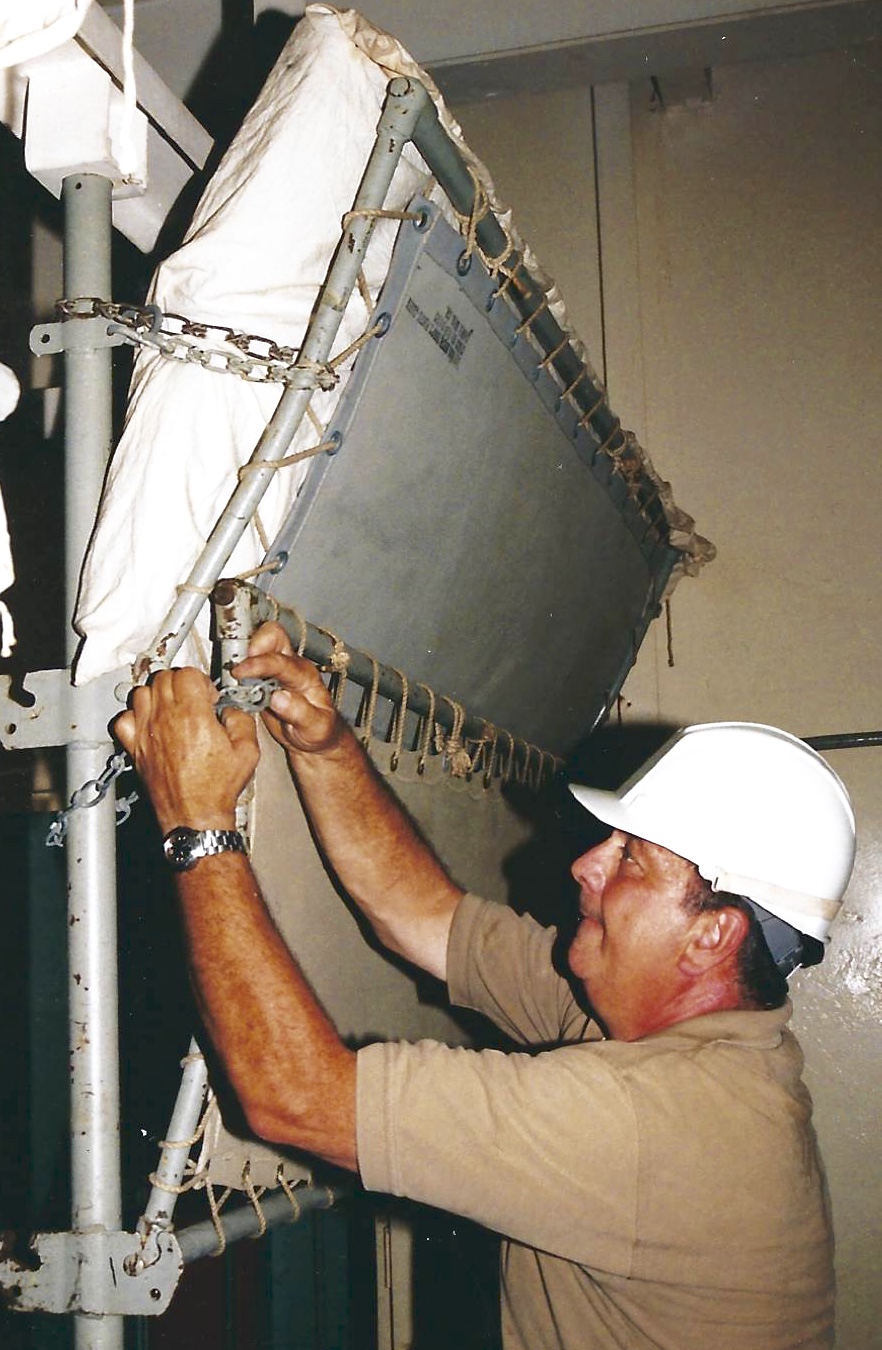 So, on a chilly February morning in 1997, Beltrone and Fisk boarded the General Nelson M. Walker, a troopship commissioned in 1945 that was more than two football fields long and able to hold up to 5,000 troops. As they strolled below decks, they noticed that on the beds’ canvas bottoms men had written graffiti during their voyage overseas. Looking closely, Beltrone realized that the markings dated between 1967 and 1968. These soldiers were heading to Vietnam. One poignant record was a seven-line inscription left by an Army Specialist who apparently was influenced by the then-popular Buffy-Sainte-Marie song, “Universal Soldier”: “You’re the one who must decide who’s to live and who’s to die/You’re the one who gives his body as a weapon of the war—and without you all this killing can’t go on.” Another asked simply: “Will I return???”
So, on a chilly February morning in 1997, Beltrone and Fisk boarded the General Nelson M. Walker, a troopship commissioned in 1945 that was more than two football fields long and able to hold up to 5,000 troops. As they strolled below decks, they noticed that on the beds’ canvas bottoms men had written graffiti during their voyage overseas. Looking closely, Beltrone realized that the markings dated between 1967 and 1968. These soldiers were heading to Vietnam. One poignant record was a seven-line inscription left by an Army Specialist who apparently was influenced by the then-popular Buffy-Sainte-Marie song, “Universal Soldier”: “You’re the one who must decide who’s to live and who’s to die/You’re the one who gives his body as a weapon of the war—and without you all this killing can’t go on.” Another asked simply: “Will I return???”
Through Art and Lee Beltrones’ efforts ultimately 300 of these graffiti-inscribed canvases were saved from the ship before it was reduced to scrap metal in Texas in 2006. The canvases have been donated to the Smithsonian Institution and the Library of Congress as well as the Navy, Army and Marine Corps museums. An eight-bunk berthing unit became part of an exhibition called “The Vietnam War: 1945-1975”, curated by the New-York Historical Society. For their Vietnam Graffiti Project, the Beltrones mounted two exhibits—one for museums west of the Mississippi, the other for museums east of the river—under the same title, “Marking Time: Voyage to Vietnam.” Along the way, they have reconnected with a hundred of the veterans who had left their mark on board that ship. The exhibits have travelled for almost 15 years to over 70 venues.
“I knew the graffiti-covered canvases and other artifacts aboard the ship must be preserved,” Beltrone said, who today works as a military artifacts appraiser. “They were part of America’s military and social history.”
And thanks to Art and Lee Beltrone’s dedication, that history will live on.
LIU Post Holds its 61st Annual Commencement Ceremony
Eric Krasnoff, the retired chairman, president and CEO of Pall Corporation, received an honorary Doctor of Business degree at LIU Post’s commencement ceremony held on May 10, 2019 at the Pratt Recreation Center at LIU Post.
Because rain was in the forecast, ceremonies for Bachelor’s Degree candidates started indoors at 10 a.m. in the Pratt Recreation Center’s gymnasium, and the graduate and doctoral ceremony took place there at 1:30 p.m. when a brief round of showers finally did arrive.
All told, as reported in Newsday, 797 undergraduate students from LIU Brentwood, LIU Post and LIU Riverhead received their Baccalaureate Degrees, 748 students got their Master’s Degrees, one student earned a Dual Master’s and Bachelor’s Degree, 43 received their Doctoral Degrees, and 182 students earned their Advanced Certificates.
“From the day you enrolled at Long Island University, you joined an elite global community,” Dr. Kimberly R. Cline, President of Long Island University, told the graduating students seated before her in the gymnasium. “Today, you will join 260,000 alumni, spread throughout the world, many of whom have achieved the highest levels of success in their field. Take advantage of what it means to be part of that unbroken chain of alumni making a positive impact in the world. Keep in touch with them, learn from their accomplishments, and become and active and engaged member of our alumni association.”
Mr. Krasnoff was being recognized for his service to LIU, as a business leader who has promoted technological advances in the life sciences, and as a philanthropist who has continuously and generously supported his local community. An inventor with a patent for a novel approach to blood processing, Mr. Krasnoff is also the former chairman of the National Blood Foundation. He continues to serve on the board of The Nature Conservancy.
The highly philanthropic Krasnoff family established the Krasnoff Family Endowed Scholarship as well as the annual Abraham Krasnoff Memorial Award for Scholarly Achievement, which honors LIU faculty for outstanding scholarly achievement. He and his wife, Sandy, also recently supported the renovation of the Krasnoff Theater on the LIU Post campus. He has served on LIU’s Board of Trustees since 1992. He was elected Chairman of the Board of Trustees in 2014.
“Now in his sixth year as Chairman of the Board of Trustees of Long Island University, Eric Krasnoff’s leadership is marked by a wealth of executive experience and four decades of personal connection to the University,” proclaimed Dr. Randy Burd, LIU Senior Vice President for Academic Affairs, in his introduction. “Long Island University gratefully honors a leader whose vision has improved our world, our local communities, and our University.”
“For me, LIU has been a thread woven into the fabric of my life,” said Eric Krasnoff from the podium, adding that getting his honorary doctorate was “a terrific honor.”
With $100 million in scholarships awarded annually, LIU has 19 Schools and Colleges, 400 academic programs, a 12:1 student-to-faculty ratio, and 110 student-run clubs and organizations.
The Princeton Review rated LIU Post as one of the “Best in the Northeast.” For 15 consecutive years, LIU Post’s College of Management has been named to The Princeton Review’s list of “The Best Business Schools.” Forbes ranked LIU in its Top Ten “Hot Colleges in the Making Under Innovative Management.”
Mary M. Lai Model of Faith Award Dinner Raises Almost 24 Grand for LIU Post Campus Ministry
By all accounts, the 24th Annual Mary M. Lai Communion Dinner was a remarkable success.
Held at the Interfaith Chapel in late April, the event raised almost $24,000 to support the ongoing community outreach programs launched by the Newman Catholic Campus Parish at LIU Post. This year the Model of Faith Award was presented to long-time volunteer Eileen Paterson, who started working at LIU in 1987 in the development office.
“The award has honored countless lay men and women and clergy, who demonstrated heroic virtue worthy of emulation within our University community,” said Father Michael Duffy, University Chaplain. “This year we are tremendously blessed for the opportunity to enroll Eileen into this prestigious list of recipients. We pray that by honoring Eileen with the Model of Faith award, she may continue to be an inspiration to all of us, especially the students and faculty of LIU Post.”
“It was such a pleasant experience to know that people really recognize what you do,” said Eileen Paterson after the ceremonial dinner. “I enjoyed every bit of it.”
Under the auspices of the Roman Catholic Diocese of Rockville Centre, the Newman parish club supports Sunday Mass, Confirmation classes, community mission trips and spiritual retreats. They also sponsor ski outings, special excursions to Broadway shows and seasonal barbecues and other social events that include people of all faiths.
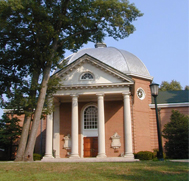 Marked by its high dome and stately pillars upholding the pediment above at its main entrance, the Interfaith Chapel resides on a knoll overlooking Gold Coast Road. Built from 1968 to 1971, the center cost more than $1 million to construct. Its neoclassical style was designed by architects Alfred Shaknis and Peter S. Van Bloem, who had done previous work on campus. Embedded in the white marble panel above the doorway are the Yin-Yang symbol, the Star of David, the Cross of Christianity, and the Star and Crescent Moon of Islam.
Marked by its high dome and stately pillars upholding the pediment above at its main entrance, the Interfaith Chapel resides on a knoll overlooking Gold Coast Road. Built from 1968 to 1971, the center cost more than $1 million to construct. Its neoclassical style was designed by architects Alfred Shaknis and Peter S. Van Bloem, who had done previous work on campus. Embedded in the white marble panel above the doorway are the Yin-Yang symbol, the Star of David, the Cross of Christianity, and the Star and Crescent Moon of Islam.
From its inception, Mary M. Lai, Senior Advisor and Treasurer Emerita, played an integral role. As the University’s first chief financial officer, Lai was one of the first women in America to reach that rank in higher education after beginning her long career here as a temporary bursar.
“In 1967, we had decided we were going to have an interfaith chapel,” said Lai (Brooklyn ’42, B.S. in Accounting), who recently recounted what it took to get the project off the ground. “I loved the idea myself. I’m one of the original contributors.”
Dr. R. Gordon Hoxie, University president from 1964 to 1968, had raised $650,000 for it, but that sum turned out to be insufficient by $350,000 when the bids came back higher. Complicating matters, Hoxie was on his way out by the time the ball got rolling.
“So here I am. I have to raise the money now, but how?” Lai said. “First thing I thought of was that Mrs. Post had given us $300,000 for the law school. We had a dean but he resigned when Hoxie left in 1968… Acting President George Stoddard said forget the law school. So I call Mrs. Post and I ask her if we could use her gift for the chapel and she said yes.”
But they were still coming up short. Then fate intervened. Owners of a nearby estate slated for demolition had contacted the administration.
“They said we could take what we wanted before it was torn down completely,” Lai recalled. One of the more interesting acquisitions turned out to be a pipe organ, which Post people retrieved and stored in the maintenance building after it proved too big to fit in the chapel then under construction. Fortuitously or not, the maintenance building caught fire. “I didn’t start the fire!” Lai laughed. They estimated that the organ was worth $50,000, and the insurance company came through with a check that answered their prayers.
“It was all done with gifts—and without touching tuition,” said Lai with pride.
And so the work of the Interfaith Chapel at LIU Post gladly continues to this day and beyond.
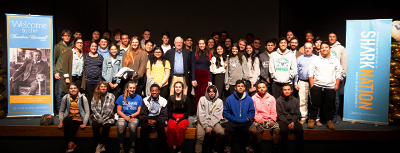
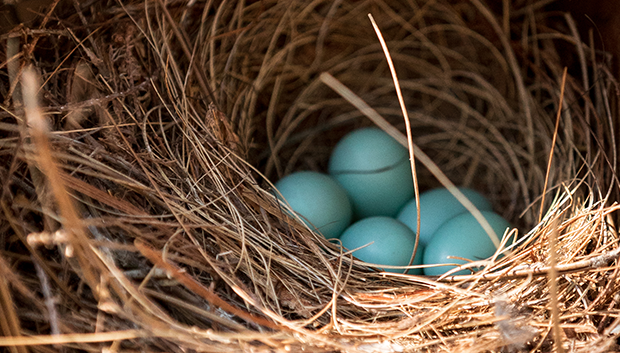
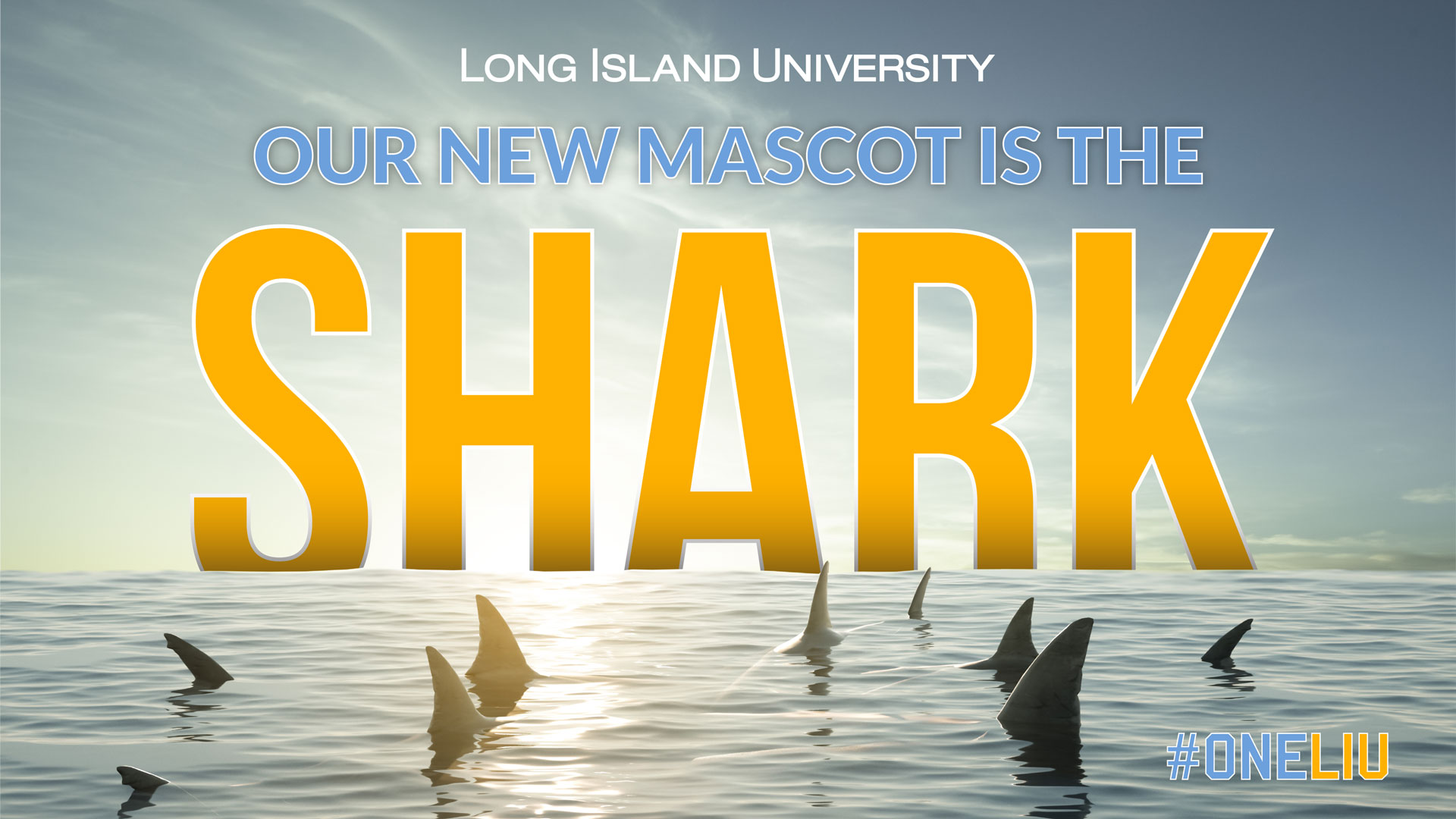
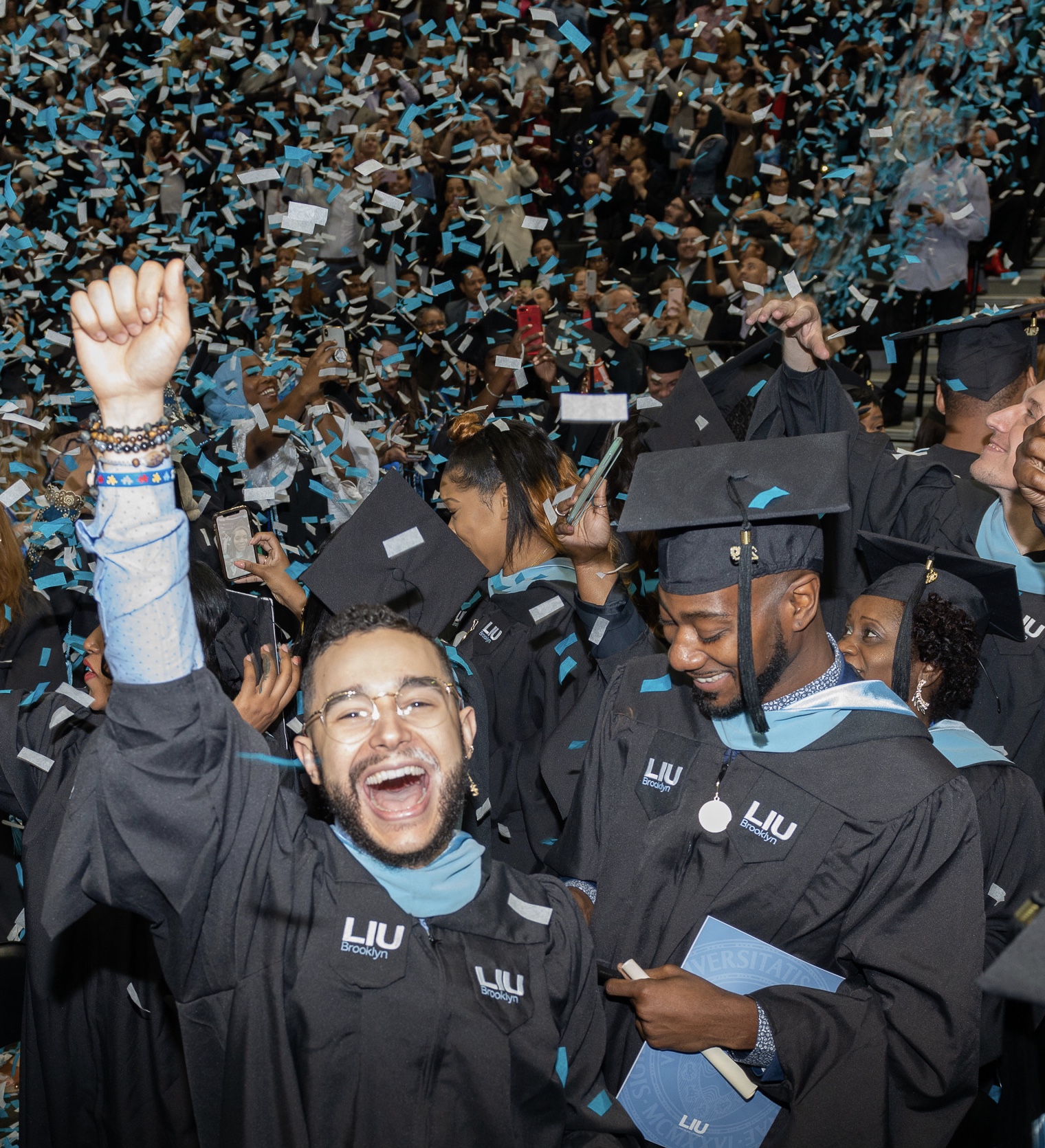
![grafiti-exbt-700px[5]](https://headlines.liu.edu/wp-content/uploads/2019/05/grafiti-exbt-700px5.jpg)
![krasnoff_edit[2]](https://headlines.liu.edu/wp-content/uploads/2019/05/krasnoff_edit2.jpg)
![MARYLAI[2]](https://headlines.liu.edu/wp-content/uploads/2019/05/MARYLAI2.jpeg)